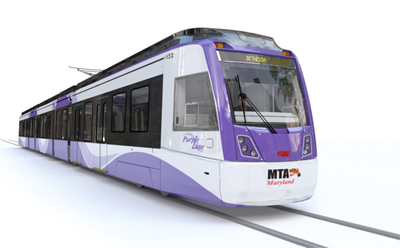Legislative Program

Maryland’s future competitive advantage depends on creating a seamless, interconnected network of fast, safe and accessible rail transit service. Rapid transit is the key to economic and jobs growth and to ensuring equity in the State’s mobility strategy. Making transit the state’s top transportation priority will put Marylanders to work, strengthen the economy, and protect our environment.
Our highest priority for the 2025 General Assembly is increased funding for transit. New transit revenues must fully fund MTA and WMATA, including development of the Red Line and Southern Maryland Rapid Transit and immediate introduction of mid-day service on the MARC Brunswick Line. We support the transportation revenue enhancements proposed by Governor Moore and the Business Transportation Fee section of HB1014 (the Fair Share Act). Additional funding is needed beyond them. We urge the legislature and MDOT to use new funding cost-effectively by minimizing spending on new highway capacity, which fails to relieve congestion.
We also support the following bills before the General Assembly:
Metro Funding Act (HB0467). Adds an inflation adjustment to Maryland's share of the $500 million per year that Maryland, DC, and Virginia,currently provide for WMATA capital expenses. Only takes effect if Virginia and DC do the same.
Land value tax near rail stations (HB0330). Allows counties to tax land near stations at a higher rate than the buildings on the land. This would increase the economic incentive to build dense transit-oriented development on the land.
